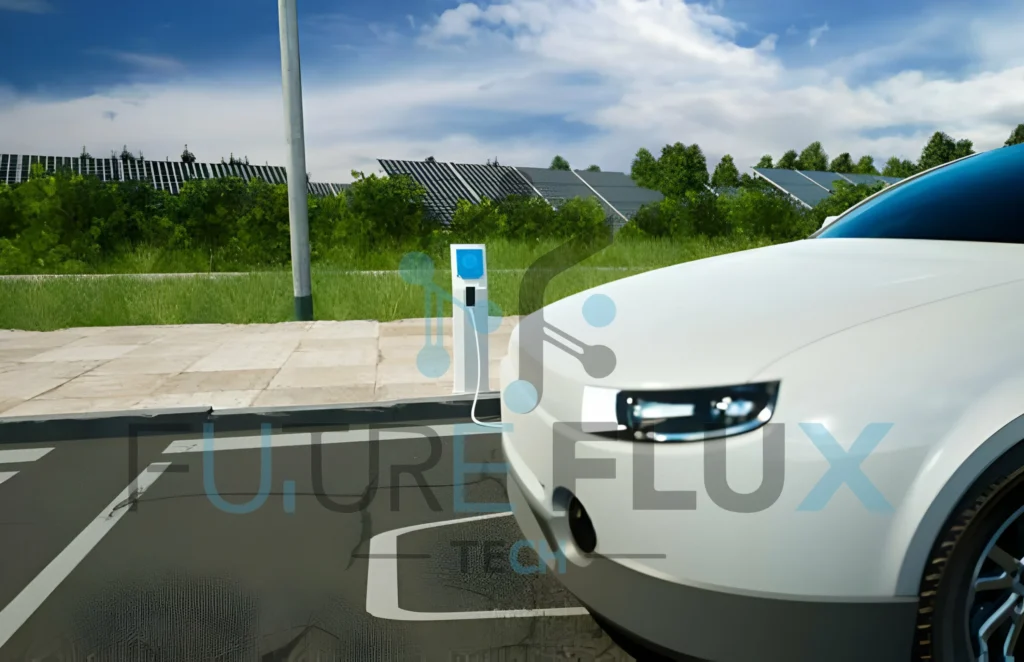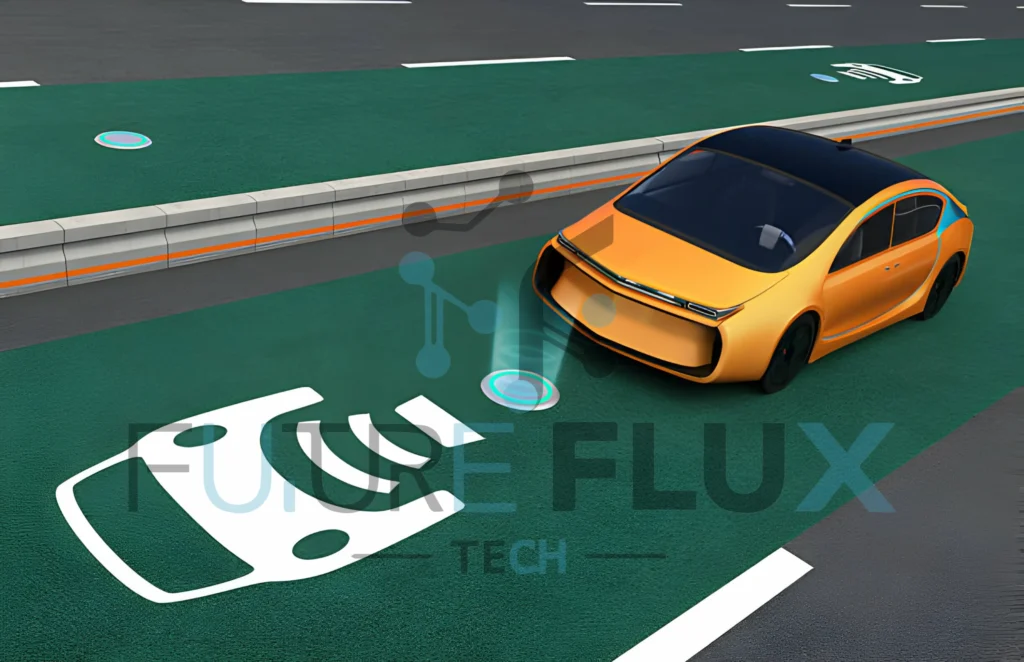The recent electric cars are not showing their potential; therefore, there is a need for a radical technology revolution. One of the upcoming outstanding technologies in the auto industry is Self-charging vehicles. This self-charging car works entirely on green energy and could be the key to improving green energy vehicles. It is also true that electric vehicles have excellent potential to solve the climate crisis.
However, electric vehicle technology, including a driving range, still encounters considerable challenges. Plus, charging problems include long waiting lines because of a limited number of charging stations and too much charging time. Relying on an inadequate electric grid that fetches energy from nonrenewable sources, a costly price tag, and performance questions. In these situations, self-charging electric cars may be the solution.
Table of Contents
ToggleWhat Is a Self-Charging Electric Car?
A self-charging car is a car that has power generation onboard. Also, it can charge itself from its own generated power. Many self-charging vehicles possess onboard solar cells. These solar cells cover the exterior of the car. With the help of these solar cells, the electric vehicle continuously generates energy and charges its battery. The premium standard for a self-charging electric car is to create most of its electricity internally, which is the opposite of external charging from the grid.
Generally, self-charging depends majorly on the manufacturer’s ability. The designer must make the vehicle as efficient as possible to reduce the needed energy per mile. This is why self-charging vehicles may appear different from traditional electric vehicles. Self-charging cars may have only three wheels and rough or irregular body shapes, which improves aerodynamics.
Furthermore, other critical components of self-charging electric car include durable and lightweight materials like Kevlar and carbon fibre. These materials make self-charging cars instead of conventional steel and heavy metals. These electric cars also need specialized solar cells that are thin and durable to make sure that the solar cells do not put too much weight on the vehicle. If you own a self-charging car in the future, you do not need to worry about the number of charging stations in your way. Ultimately, you will not have range anxiety issues anymore. Moreover, you will eliminate long waiting lines in the charging stations. There are many other benefits of self-charging cars, which we have discussed below.
How Electric Cars Benefits of Solar Self-Charging

With the transition of gas cars into electric ones, there has been continuous innovation in the car industry. One of the newest is solar self-charging cars. Self-charging vehicles provide several benefits compared to conventional electric vehicles. Below, we have discussed some of the benefits of self-charging electric cars.
1- Elimination of Range Anxiety
One of the crucial advantages of the EVs technology is the removal of range anxiety. It does so by removing the need to charge the electric vehicle frequently. When you have a car that can charge itself, you can have a considerable benefit in overall range compared to conventional electric vehicles.
2- Saves Money
Autonomous charging EVs help you save a considerable amount of Money by saving on fuel. Most people who travel to and fro will rarely have to recharge their vehicles. As an outcome, they do not need to spend hefty amounts on fuel. Some studies show that buyers will pay four times less for fuel than drivers of conventional electric vehicles. This comparison is made for conditions like longer than average travelling distance, at times of bad weather, and extended drives. This is the reason that self-charging cars are way more economical, and it should be adopted commonly.
4- Positive Implications for Grid Infrastructure
Besides the benefits solar self-charging electric cars offer customers, they also have a positive significance for grid infrastructure. Let us tell you how. If you look at the electric vehicle infrastructure as a whole, it is well-developed, and the power demand from electric vehicles will put a massive burden on the grid. There is expected to be an enormous increase in electric cars. A rough estimation indicates that upgrading electric grids globally would take approximately $7 trillion and about 20 years.
However, if the manufacturers put the solar panels directly on the cars, they will offload the demand from the grid. There will be no need to construct an extensive grid infrastructure to support renewable energy in transportation. If this happens, the world will benefit from sustainability and decrease the need to build the infrastructure.
5- Good for the Environment
Even though electric vehicles do not cause air pollution, the electricity they use to charge itself results in pollution. This is because most electricity utilized by electric vehicles comes from nonrenewable sources. On the contrary, solar vehicles, being sustainable transportation, can claim to be 100% zero pollution.
The Hurdles of Self-Charging

Self-charging indeed is one of the most outstanding innovations in electric vehicles, and it is getting closer to reality; there are still hardships and hurdles that car manufacturers need to overcome. This is because every innovation faces hurdles at the start.
One of the prominent hurdles is bringing this innovation to mass production. The ongoing production hardships that manufacturers face prove that production is a challenging facet of EV design.
The self-charging car will only intensify this hardship even more. This is because solar self-charging vehicles are a new and novel technology that has yet to be brought to the market.
Moreover, one of the significant challenges will be making the customers embrace one of the future mobility solutions: self-charging cars. For example, Tesla released its first electric vehicle into the market in 2008, and it took more than ten years to gain the position that we see now.
Cars with Solar Panels
Solar energy is helping businesses and homes globally transition towards a greener way of living. Also, it is now evolving to solve many of our electric mobility problems. Now, there are cars with solar panels that help them charge themselves. However, many big car companies still need to adopt this concept. Following are some of the latest vehicles with solar panels:
1- Sion Solar Powered Car
2- The Hyundai INOQ
3- Aptera Solar Car
4- Light year
5- Tesla Cybertruck Solar Roof
These are some of the solar self-charging cars that have been in use until now. However, the cost of these cars with solar panels is currently beyond the reach of many people. This is because it is the latest technology and is rare. However, it is expected that the price will come down with time. Lastly, the future belongs to green cars, and solar-powered vehicles will significantly improve the car industry.
Conclusion
With technology like self-charging cars, the future of electric vehicles (EVs) is bright. Also, it is even more revolutionary for the first time. Self-charging cars offer plenty of advantages over conventional electric vehicles. For instance, it is good for the Environment, saves Money, and eliminates range anxiety, which is one of the significant issues among electric car owners.
However, there are hurdles to making this technology familiar. Undoubtedly, this technology is unbelievable, and convincing people to trust in its authenticity and efficiency is a massive challenge for the technology.
Know about the Japanese best-selling electric car by visiting our blog website.
I’m Waqas, an electric vehicle enthusiast and tech writer with over 6 years of experience covering the EV industry. I write in-depth articles, comparisons, and reviews to help readers understand the fast-evolving world of electric mobility. From battery technology to EV launches and charging trends, I aim to make complex EV topics simple, engaging, and informative for everyday drivers and curious readers alike.





